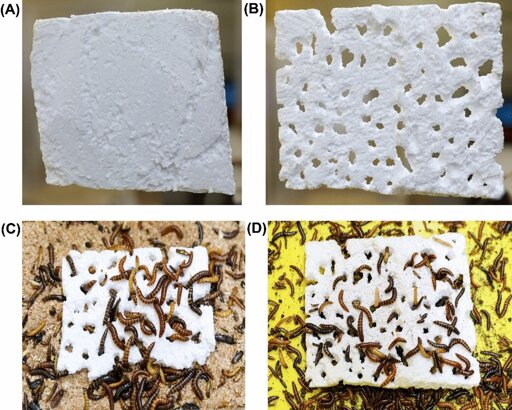I had a foam insulation board that I used to insulate my chicken coop. The chickens pecked at and ate a bunch of it before I noticed and got it covered up.
It wasn’t in the article, but is the styrofoam converted into something else as excrement? Or do they just crap out micro plastic?
I clicked through to the Nature article, and it sounds like about half the plastic gets used for making energy and exhaled as carbon dioxide, with the other half getting pooped out as microplastics. I’d call that progress. It’s not the end goal, but it’s a good tool with some potential, is I think what they are saying.
Just give them little diapers
I can’t find it in the article, but I assume this is the same as all the other plastic eating organisms; They can eat plastic under specific circumstances, but would rather not. What is in the article; they can only survive on polystyrene if it is mixed with other food and nutrients.
I’ve wondered how far out we are from microorganisms and insects adapting to remove one of the biggest utilities of plastics, their durability. Crazy to think it’s taking less than a century for these organisms to begin to adapt.
Might have been even faster if world insect populations weren’t crashing.
You could also draw a conclusion that plastic eating insects are evolving faster because of less competition and abundant plastic. It’s amazing how life can be both fragile and resilient at the same time
Life is incredibly resilient. It’s been through way worse than us and it’s done fine.
The right conditions for any single species to keep existing in a safe and comfortable place, like the friendly green-blue paradise we were born on, are heartbreakingly fragile.
I expected to see microbes here first. Insects have a slower reproduction cycle, so evolution should take longer.
Well, it’s the gut bacteria of those insects doing the breaking down, so it is still microbes. Just microbes hosted by worms.
More like when there is an abundance of something in an environment. Something will adapt to consume it evolution at its finest.






